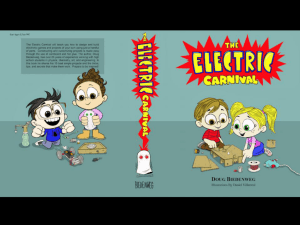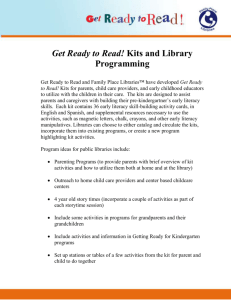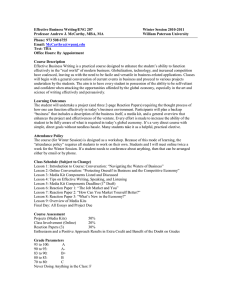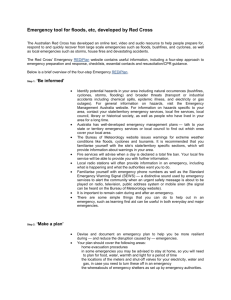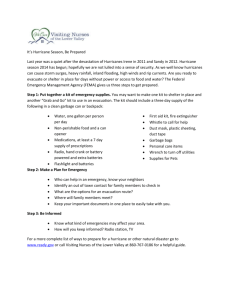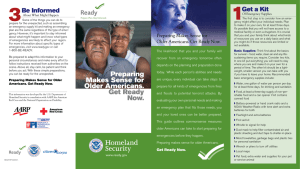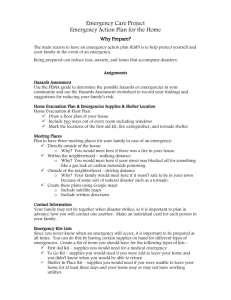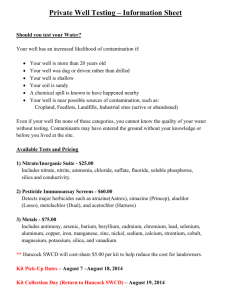Safety Presentation (PowerPoint 10 MB)
advertisement
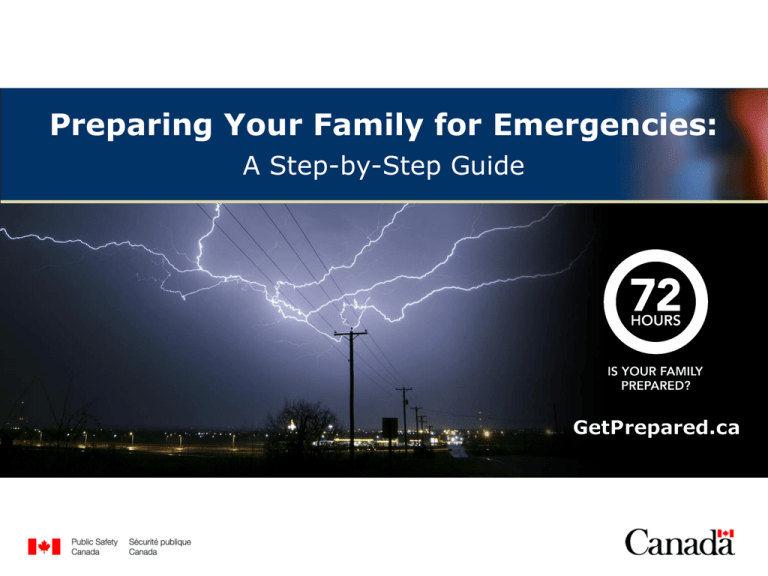
Preparing Your Family for Emergencies: A Step-by-Step Guide Have you ever thought about how to prepare for an emergency? How would you: • Look after your family for 72 hours? • Cope without power or tap water? • Contact your family and receive information? 2 Fast fact: • Although the majority of Canadians believe that having an emergency plan and emergency kit are important, only a small minority have actually created them 3 Learn the three steps to getting prepared: • Know the risks • Make a plan • Get a kit 4 Common misconceptions: • Most emergencies are short-lived • I won’t ever have to deal with an emergency where I live • There are a lot of emergencies I just can’t prepare for • Preparing takes too much time 5 STEP 1 Know the risks Know your region The consequences of emergencies can be similar, but knowing the risks in your region can help you better prepare. 6 STEP 2 Make a plan You aren’t prepared — until you make a plan. • Use your Emergency Preparedness Guide as an outline • Photocopy your plan • Keep copies of your plan in safe and memorable places 7 STEP 2 Make a plan Taylor family: floor plan • Emergency exits • Designate a family meeting area • Escape routes from neighbourhood • Ensure help for people with disabilities 8 STEP 2 Make a plan Jane & Bobby Taylor’s plan • School’s emergency policies • Updated contact information • Designate contact persons and make sure your children know how to get in touch with them 9 STEP 2 Make a plan Special needs plan • Health information card • Grab-and-go bag with medication, prescriptions, medical documents • Ensure walkers, oxygen tanks and other emergency supplies • Personal support network 10 STEP 2 Make a plan Plan for high-rise residents • Evacuation plan • Know your exits • Extra water in case of power outage 11 STEP 2 Make a plan Max’s plan • Location of “pet-friendly” shelters/hotel • Extra pet food and water in emergency kit • How will you transport your pets? 12 STEP 2 Make a plan Other helpful hints: • Choose an out-of-town contact person • Make arrangements through friends or cultural centres • Practice your plan! • Review your plan once a year 13 STEP 3 Prepare a kit To prepare for an emergency that could last 72 hours or more, what would you put in a kit? 14 STEP 3 Get a kit 15 Pre-packaged kits: • St. John Ambulance and The Salvation Army kits are available for purchase at www.sja.ca or from retailers across Canada • Canadian Red Cross kits are available at www.redcross.ca 16 Three steps to getting prepared: • Know the risks • Make a plan • Get a kit 17 Prepare now! GetPrepared.ca 1 800 O-Canada • • • • • Environment Canada Weather Office: weatheroffice.gc.ca Safe Canada: safecanada.ca Canadian Red Cross: redcross.ca St. John Ambulance: sja.ca The Salvation Army: salvationarmy.ca 18 19
